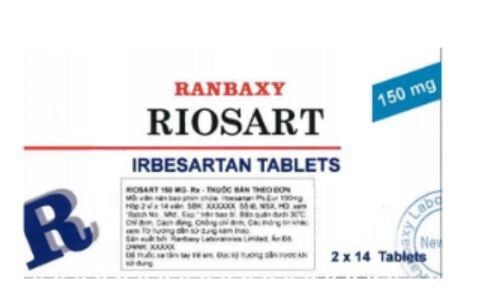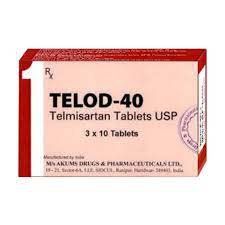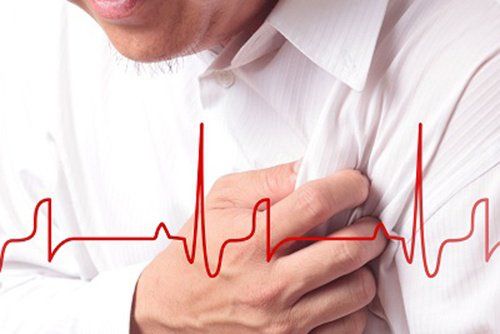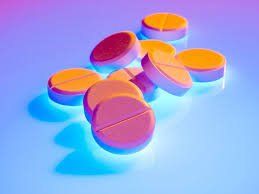This is an automatically translated article.
The article is professionally consulted by Master, Doctor Do Xuan Chien and Master, Doctor Hoang Thi Hoa - Department of Medical Examination and Internal Medicine - Vinmec Ha Long International General Hospital.Pulmonary hypertension is a chronic disease that cannot be completely cured. If the disease is diagnosed and intervened early, it can still be controlled, avoiding too much impact on the patient's life. However, if not detected in time, the disease will have many dangerous complications, even death.
1. Is pulmonary hypertension dangerous?
If the cause is not treated or eliminated, pulmonary hypertension often has a severe course and has a high risk of dangerous complications. This disease often progresses silently because in the early stages of the disease there are usually no symptoms and so on, it gets worse in the body. Some dangerous complications of the disease such as:Right ventricle hypertrophy: When the artery is blocked, the right ventricle has to work harder, to pump blood to the lungs, it must enlarge. If this condition is prolonged, it will lead to right ventricular hypertrophy, causing the right ventricle to succumb to pressure, causing heart failure, which can be fatal; Blood clots block blood vessels: When injured, the phenomenon of blood clots helps us stop bleeding. However, when pulmonary artery pressure increases, blood clots form in the pulmonary artery. This blood clot will cause the artery to be narrowed and blocked, this condition will make the disease worse, can cause the patient to go into shock, even death; Arrhythmia: This is a common complication for patients with pulmonary hypertension due to damage in the ventricles. If this condition is not corrected, the heart rhythm disorder makes the patient feel tired, anxious, dizzy and faint, even death; Hemoptysis: This is a serious complication of pulmonary hypertension. The patient coughs up blood because the pressure is so great that the artery ruptures, causing blood to flow into the lungs. This complication is potentially fatal for the patient. Currently, there is no specific drug to treat pulmonary hypertension, so patients need to pay attention to the signs of the disease for timely examination and intervention.

2. Subjects at high risk of pulmonary hypertension
Pulmonary hypertension can happen to anyone, at any age. In which:Secondary hypertension often occurs in the elderly; Young people often have primary pulmonary hypertension; Overweight and obese people have a high risk of developing pulmonary hypertension because they are prone to sleep apnea; You will be at higher risk of developing pulmonary hypertension if a family member has the disease; According to statistics, compared with men, women in pregnancy age have 2.5 times higher rate of disease; People with HIV , taking drugs or taking weight loss drugs of unknown origin are also at increased risk of developing pulmonary hypertension; Due to geographical location, people living in highland areas are often prone to pulmonary hypertension; Pulmonary hypertension can occur in both men and women.
3. Treatment of pulmonary arterial hypertension
Currently, there is no specific treatment for pulmonary hypertension. Therefore, it is necessary to diagnose and treat promptly to control symptoms of the disease, avoid affecting life and causing dangerous complications.A number of treatment methods are being applied including:
Appropriate and healthy lifestyle: This is one of the most effective disease prevention methods, and at the same time it contributes to the treatment of high blood pressure. pulmonary vascular disease in particular and hypertension in general. You should spend a lot of time resting, relaxing, avoiding fatigue and anxiety to limit pulmonary artery pressure. Regularly practice sports, exercise, avoid using stimulants; restrict travel in mountainous and highland areas; Follow a balanced, reasonable diet, keep your body in balance. To reduce angioedema, you should limit the amount of salt in your daily diet; Medications: Your doctor will prescribe you medications to treat pulmonary hypertension such as beta-blockers. In addition, there are a number of other drugs such as diuretics, anticoagulants, vasodilators... Patients need to strictly follow the doctor's prescription, if any side effects occur. it is necessary to immediately notify the treating physician; Surgery: If drug treatment doesn't work, your doctor will perform surgery. There are two main types of surgery for patients with arterial hypertension: Atrial septal bypass and heart-lung transplantation: -Atrial septal defect: Create an opening between the right atrium and the left atrium to reduce pressure. up the ventricles;
-Heart-lung transplantation: Apply to young patients with primary pulmonary hypertension. This is a method with many potential side effects, patients have to take supplements for life.

Currently, Vinmec International General Hospital is a prestigious and reliable medical examination and treatment address for patients with cardiovascular disease in general and patients with pulmonary hypertension in particular. With modern equipment and a team of experienced cardiologists, always devoted to the health of patients, Vinmec is always highly appreciated by experts for the quality of cardiovascular examination and treatment and is the address trusted by many patients.
Please dial HOTLINE for more information or register for an appointment HERE. Download MyVinmec app to make appointments faster and to manage your bookings easily.














